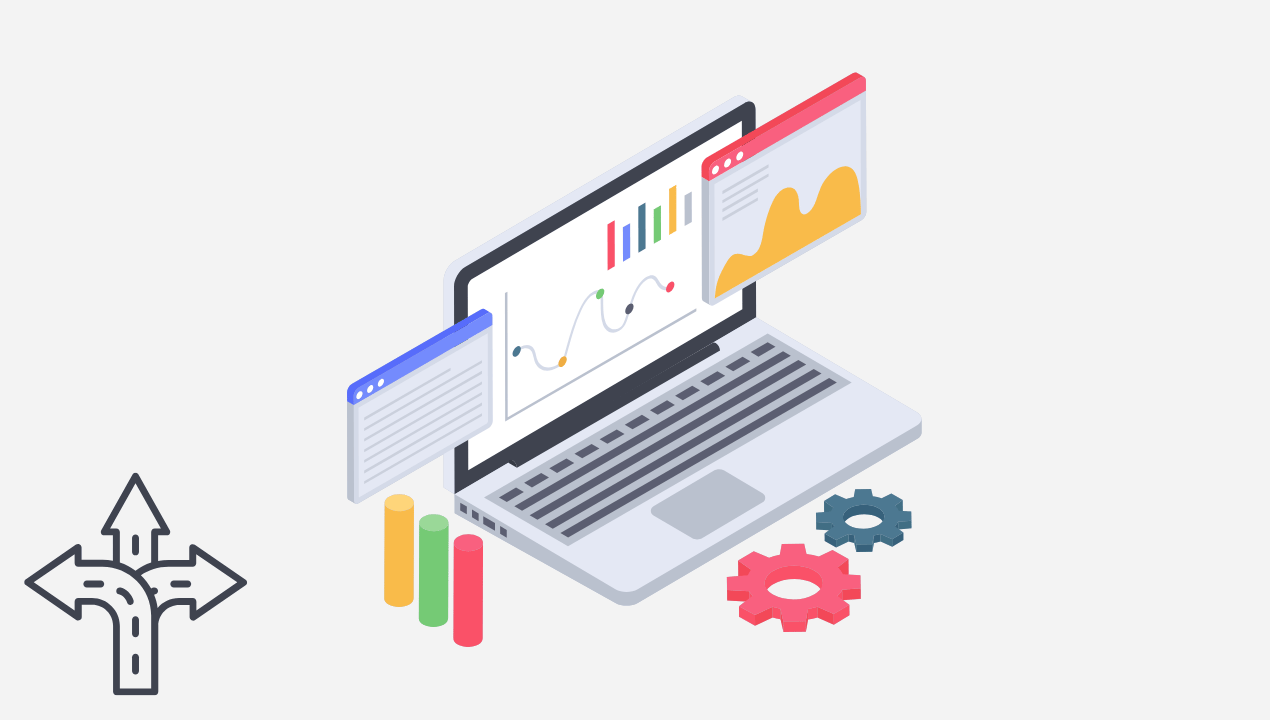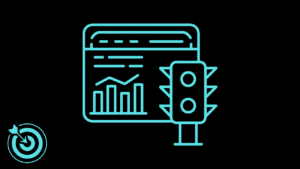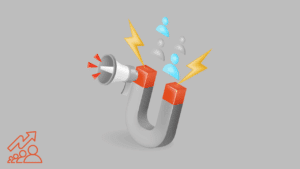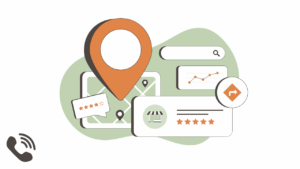Google Analytics has long been the standard for website and user behavior tracking. But as privacy regulations evolve, user concerns grow, and Google’s platform becomes increasingly complex, many businesses and creators are looking for simpler, privacy-focused, or more specialized analytics tools. Are you tired of GA4 or worried about privacy? In this article, we’ll explore the best Google Analytics alternatives and share the top 10 tools and solutions.
This guide explores ten top alternatives to Google Analytics, highlighting what makes each unique, who it’s best for, and how it compares on features, pricing, and ease of use. Whether you’re running a startup, content site, ecommerce store, or SaaS product, there’s a solution here that can match your needs.
Why Look Beyond Google Analytics?
While Google Analytics is powerful and free, it’s not for everyone. Users often cite the following challenges:
- Firstly, steep learning curve for beginners
- Secondly, invasive data collection practices
- Compliance issues with GDPR or CCPA
- Overloaded dashboards and unnecessary features
- Finally, Sampling and data accuracy limitations
By considering alternatives, you may find a tool that offers:
- Firstly, cleaner, more intuitive interfaces
- Secondly, better support for privacy compliance
- Real-time tracking without data sampling
- Finally, more actionable insights with less clutter
1. Plausible: Best Analytics Tools
Plausible is a lightweight, privacy-focused analytics platform that prioritizes simplicity and GDPR compliance.
Best for:
- Bloggers and content creators
- Privacy-conscious businesses
Key features:
- No cookies or personal data tracking
- Clean, simple dashboard with only essential metrics
- Lightweight script that doesn’t slow down your site
Pros:
- Transparent and open-source
- Easy to install and use
Cons:
- Fewer advanced integrations
- Not suitable for complex ecommerce needs
2. Matomo Top Google Analytics Alternatives
Matomo is a powerful, open-source analytics platform that can be hosted on your own server or used via cloud.
Best for:
- Enterprises with strict data compliance needs
- Teams needing full data ownership
Key features:
- Heatmaps, session recordings, and form analytics
- Full control over data when self-hosted
- Ecommerce and goal tracking
Pros:
- GDPR-compliant out of the box
- Extensive functionality
Cons:
- Can be complex to configure
- UI feels dated compared to newer tools
3. Fathom Analytics
Fathom is another privacy-first alternative that’s known for its fast performance and elegant design.
Best for:
- SMBs and personal websites
- Organizations avoiding GDPR headaches
Key features:
- Simple dashboard showing key metrics
- 100% GDPR, CCPA, and PECR compliant
- Great uptime and fast data delivery
Pros:
- Easy to understand and deploy
- Respects user privacy
Cons:
- Lacks segmentation and custom reports
4. Mixpanel Google Analytics Alternatives
Mixpanel is a product analytics platform geared toward SaaS companies and app developers.
Best for:
- SaaS, mobile apps, and tech startups
Key features:
- Funnels, retention analysis, and cohort tracking
- Event-based model rather than page views
- Easy segmentation and A/B testing support
Pros:
- Granular, behavior-driven insights
- Powerful querying features
Cons:
- Higher learning curve
- Free tier is limited
5. Heap
Heap automates event tracking, so you don’t need to manually tag every action or click.
Best for:
- Teams without dedicated analytics engineers
Key features:
- Automatic capture of every user interaction
- Custom event creation via UI
- Strong visualization tools
Pros:
- Time-saving setup
- Powerful for user journey analysis
Cons:
- Can collect too much noise without filters
6. Google Analytics Alternatives: Clicky
Clicky offers real-time web analytics with a retro design and high-speed insights.
Best for:
- Webmasters and small businesses wanting real-time data
Key features:
- Heatmaps, uptime monitoring, and goal tracking
- Spam/bot filtering
Pros:
- Simple and effective
- Real-time traffic and goals
Cons:
- Design is outdated
- Limited reporting customization
7. Simple Analytics
True to its name, Simple Analytics delivers clean insights without invading user privacy.
Best for:
- Indie developers, bloggers, privacy-first brands
Key features:
- No cookies, no personal data tracking
- Integrates easily with Jamstack sites
Pros:
- Fast, transparent, and EU-hosted
Cons:
- Not for data-heavy enterprise needs
8. Amplitude: Google Analytics Alternatives
Amplitude is a high-end product analytics tool with deep behavioral analysis.
Best for:
- Growth-stage tech companies and apps
Key features:
- Journey mapping, user retention, and A/B testing
- Real-time collaboration and dashboard sharing
Pros:
- Great for scaling products
- Built-in machine learning insights
Cons:
- Steep learning curve
- Expensive for small teams
9. PostHog
PostHog is an open-source analytics suite with full data ownership and developer-friendly tools.
Best for:
- Engineering-heavy teams
- Developers wanting custom analytics stacks
Key features:
- Session recording, feature flags, heatmaps
- Self-hosted or cloud options
Pros:
- Highly customizable
- All-in-one platform
Cons:
- Not beginner-friendly
- Requires some setup knowledge
10. Woopra
Woopra focuses on customer journey analytics across multiple touchpoints.
Best for:
- Businesses with long sales cycles and multiple touchpoints
Key features:
- Real-time journey analytics
- CRM, support, and marketing integration
Pros:
- Combines customer support and sales data
Cons:
- More useful at scale than for small sites
Comparison Table: Top Google Analytics Alternatives
| Tool | Best For | Strengths | Weaknesses |
|---|---|---|---|
| Plausible | Privacy-focused websites | Open-source, simple, fast | Limited integrations |
| Matomo | Enterprises, compliance needs | Advanced, self-hosting option | Complex setup |
| Fathom | Personal sites, SMBs | Elegant, privacy-compliant | Few advanced reports |
| Mixpanel | SaaS and mobile apps | Event tracking, funnel analysis | Learning curve |
| Heap | Non-technical teams | Auto event tracking, journey mapping | Potential data overload |
| Clicky | Real-time web data | Speed, uptime tracking | Outdated interface |
| Simple Analytics | Developers, bloggers | Minimalist, fast, ethical | Limited depth |
| Amplitude | Product growth teams | Deep behavior analytics | High price |
| PostHog | Developers, engineers | Customizable, open-source | Setup complexity |
| Woopra | Customer journey tracking | CRM + marketing data fusion | Not ideal for small sites |
Choosing the Right Tool for Your Needs
There’s no one-size-fits-all when it comes to analytics. The right tool depends on your business model, technical resources, and data privacy priorities. Here’s how to decide:
- Choose Plausible, Fathom, or Simple Analytics if you want a privacy-focused, fast solution.
- Go for Mixpanel, Amplitude, or Heap if you need deep user journey and product analytics.
- Use Matomo or PostHog if you prefer full control and open-source flexibility.
- Try Clicky for instant insights without the fluff.
- Select Woopra if you’re focused on tracking multi-touch customer journeys.
Final Thoughts
Google Analytics is no longer the only serious option. Whether you’re looking for simplicity, privacy, or powerful behavioral insights, these ten tools offer strong, focused alternatives.
Evaluate based on your audience, compliance needs, and internal bandwidth. Many of these platforms offer free trials—take advantage of them before committing.
Choosing the right analytics tool means better insights, faster decisions, and more confident growth—without compromising user trust or drowning in data you don’t need.








